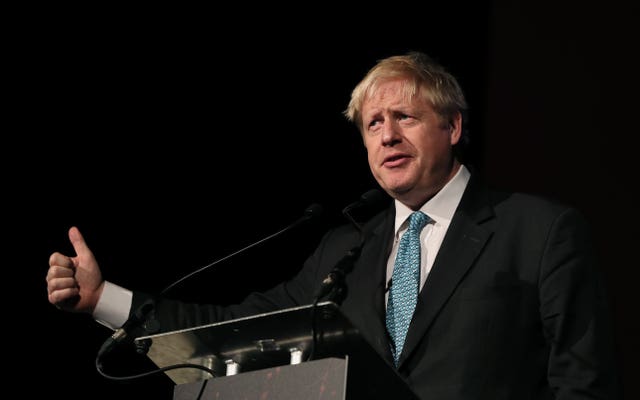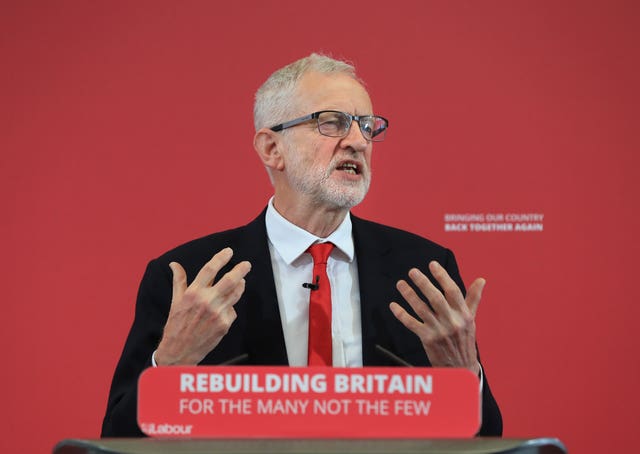Early general election could ‘kill’ Brexit, Hancock warns Tories
Health Secretary says party must not go to the country until Brexit delivered as poll makes Johnson the front runner for Tory crown.

Theresa May’s successor must not risk calling a general election until Britain has left the EU, a Cabinet minister has warned.
Health Secretary Matt Hancock said an early poll could hand the keys of No 10 to Jeremy Corbyn, and risk “killing Brexit altogether”.
He said it was essential the Conservatives delivered on the 2016 referendum result in the current parliament before going back to the country.
His intervention came as a poll of grassroots Tories made Boris Johnson the clear front runner to succeed Mrs May after she bowed to pressure to agree a timetable at the start of next month to elect a new leader.

A YouGov survey for The Times of party members – who will have the final say in the contest – put the former foreign secretary on 39%, three times the 13% for former Brexit secretary Dominic Raab.
Of the others, Home Secretary Sajid Javid and Environment Secretary Michael Gove, were both on 9%, with Foreign Secretary Jeremy Hunt on 8%. Mr Hancock was on just 1%.
In an interview with The Daily Telegraph, the Health Secretary, a Remainer in the referendum, warned that whoever gained the Tory crown had to deliver on Brexit before considering a general election.
“I think a general election before we’ve delivered Brexit would be a disaster. People don’t want it. I’m with Brenda from Bristol. We need to take responsibility for delivering on the referendum result,” he said.
“Who knows what the outcome of a general election would be under these circumstances? A general election before that not only risks Jeremy Corbyn, but it risks killing Brexit altogether.
“We’ve got to deliver Brexit in this parliament, then we can move forward.”
Mrs May is set to make one final attempt to get her Brexit deal through Parliament when she introduces the Withdrawal Agreement Bill (WAB) in the Commons in the first full week of June.
But following the final collapse of cross-party talks with Labour on Friday, few at Westminster give her much chance of success.
Whatever the result, Mrs May has agreed to meet the chairman of the backbench 1922 Committee Sir Graham Brady following the second reading vote to agree a timetable for the election of her successor.
Defeat, however, will almost certainly see a ratcheting up of pressure from Conservative MPs for her early swift departure from No 10.
Shadow Brexit secretary Sir Keir Starmer said Mrs May could still break the parliamentary deadlock by including a second referendum on the face of the WAB.
“Whatever happens, they have got to find a way of breaking the impasse,” he told the BBC Radio 4 Today programme.
“What we can’t do is just keep on buying another week at a time, which is what the Prime Minister has been doing for months.”
Meanwhile Mr Corbyn is set to issue a rallying call to Labour supporters in the European elections, insisting only his party can halt the rise of the “far right”.
In a speech in Merseyside, the Labour leader will say that years of neglect had “opened the door” to the far right in communities hit by cuts.

He will argue that only a Labour Party which rejected the “failed economic system” and was committed to tackling inequality could roll back the threat.
It follows criticism from Labour MPs that the party has been trying to face both ways on Brexit, with a confused message over the circumstances in which it would back a second referendum.
Addressing a rally in Bootle, Mr Corbyn will seek to set aside such differences with a return to more-traditional Labour ground.
“Years of neglect of our communities has opened the door to the far right. It’s up to Labour to stand up to that threat,” he will say.
“Politics as usual won’t defeat them. We need Labour’s radical programme to transform our country and turn the tide of inequality by ending austerity and investing in our communities and people.”





